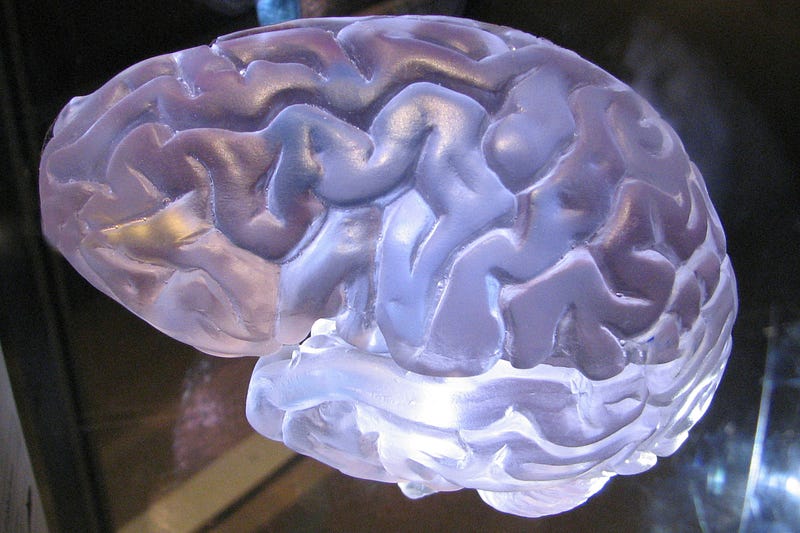Is Playing Wordle Enough to Keep Dementia at Bay?
Written on
The Reality of Middle Age
A conversation with a friend recently made me reflect on my mental habits. They remarked, “You do realize that solving the NY Times Wordle and Connections daily isn’t sufficient to keep your brain agile, right?” I felt a bit defensive, having just boasted about my ability to complete most Wordle challenges in just 2 to 4 attempts, and often finishing all Connections. However, I began to question whether this was truly enough to stave off cognitive decline as I grow older. My friend, with this challenge, pushed me and my husband to seek out more stimulating activities.
Life in Our 50s
As many of my friends approach or have already crossed into their 50s, we find ourselves with children who are nearing graduation from high school, leading us to consider futures that involve less time spent together. Our routines have become well established. I frequently encounter others my age while shopping, as we all seem to frequent the same stores within our neighborhoods. We traverse these familiar paths each week, repeating the necessary tasks.
Last year, my husband and I made an effort to expand our social circles by trying out new activities like pub curling and lawn bowling at our local recreation center.

Photo by Lisa Yount on Unsplash
Am I Doing Enough?
Yet, I still ponder if my efforts are sufficient to prevent memory loss. There are times when I struggle to find the right words. I envision a concept in my mind but can’t articulate it verbally. Where do those words disappear to?
For instance, I might say, “You know, that thing you sit on by the back door to put your shoes on?”
To which I get the response, “You mean the bench?”
“Oh yes, the bench!”
What additional steps can I take to enhance my aging mind?
Research Insights
Dr. Ronald Peterson from the Mayo Clinic highlights three essential strategies to lower the risk of dementia:
- Embrace a nutritious diet (consider the Mediterranean diet).
- Engage in physical activity (aim for 150 minutes weekly).
- Maintain social and intellectual engagement.
The U.S. National Institute on Aging adds further recommendations:
- Manage blood pressure.
- Ensure quality sleep.
Strategies for Cognitive Retention
According to Harvard Health Publishing, here are six methods to keep our minds sharp as we age:
- Engage in mental challenges by learning new skills. This stimulates brain cells and promotes communication among them. Activities such as work, volunteer opportunities, and hobbies can keep our brains active. For instance, a friend who cautioned me that Wordle and Connections weren't enough stimulation plans to take up painting upon retirement, despite having no prior experience.
- Utilize all your senses while learning. Engaging multiple senses activates various brain regions that aid in retention.
- Cultivate the belief that you can positively impact your cognitive abilities. Research indicates that individuals who actively strive to stimulate and preserve their memory tend to have favorable outcomes.
- Leverage technology to manage basic tasks, allowing your mind to concentrate on more complex challenges. For example, using a digital calendar for reminders or designating specific spots for items like keys can free up mental space for deeper thinking. Diversifying your routes to familiar destinations can also prevent your brain from operating on autopilot.
- Reiterate information you wish to remember, either through speaking it aloud or jotting it down. Repeating names or directions can solidify these memories.
- Space out learning sessions, particularly for intricate material. Revisiting information after intervals of one hour, several hours, and then a day can enhance retention.

Photo by Tonik on Unsplash
Incorporating This Knowledge into Daily Life
As I absorbed this information, I realized my focus should shift more towards my sleep quality, dietary choices, and physical activity rather than solely on my performance with Wordle or Connections. While these puzzles are enjoyable, it’s crucial to diversify my routine, challenge myself with new knowledge, and stay socially and intellectually engaged.
If you resonate with this discussion, I invite you to clap, follow, and share your strategies for staying active and stimulating your mind in the comments. I'm eager to hear how others keep their brains sharp.
Thank you for reading!
Making Healthy Lifestyle Choices May Reduce Your Risk of Dementia
View an infographic on steps you can take that may help lower your risk for dementia.
www.nia.nih.gov
6 simple steps to keep your mind sharp at any age - Harvard Health
Memory lapses can occur at any age, but aging alone is generally not a cause of cognitive decline. Studies show that…
www.health.harvard.edu